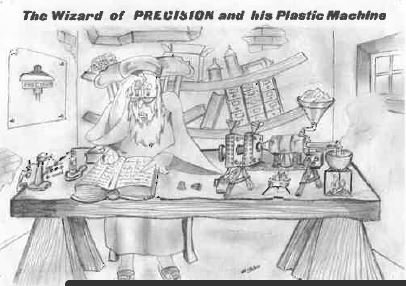Hi Steemians,
In my first post I talked about my view of the trend in the industry to follow two well-known principles that would lead to false decisions and overstrained employees. It is something mostly all people know in a certain way. And what should be wrong with this when someone steps up the job ladder? Nothing in first site but when you have to deal with these people it can be very frustrating and annoying. Let me give you an example. I started as a project manager and developed plastic parts for more than 8 years.

In this time, I learned a lot about how automotive industry works, about supply chain and the manufacturers’ point of view especially in the case of quality. The teamwork between customer and supplier was fair and respectful in both ways. You could solve problems easily and quickly and the function of the produced parts was the focus of discussions. But in the last years there have been a change in this relationship. The customer is more and more dictating. And as a result of the outsourcing of the last decades the knowledge for some production processes is no longer present in these companies. The rising requirements and the rising degree of automation are two factors that won’t go along with the before described trend to promote people that are incompetent for their job and the loss of knowledge. To the contrariety the result of the rising degree of automation is the need to get better qualified personnel to face the new challenges. But because of the demand on qualified personnel it is more and more difficult to find. That in my opinion is one of the reasons why the Peter Principle is expanding in today’s industry. And so you have to work with people that have no clue what is going but they often set the requirements for the parts.
What is the result?
In some cases, the requirements have reached a level that the production process cannot match. In my company we are producing plastic parts that have more than 200 characteristics to validate. But that’s not for a fender or bumper of a car or a truck. The part is not bigger than a lighter and the most characteristics have nothing to do with the function of the part.

But as a supplier in the supply chain you have to deal with it and when one of these characteristics is not in specification you have to solve the problem. In the past it was possible to talk to the customer. If the function for the parts was given the specification was changed. But today function of the part is no longer in focus of validation and quality requirements and there for it is necessary to scrap good parts.

In my opinion this is a result of the two principle I described in my first post because if someone knows nothing about the basics of engineering and is in a position to set requirements or being responsible for quality… This could be very annoying and frustrating…
Thanks for reading!!!
PS: The last picture was given to me by my mentor. One of his formers students painted him at his desk.
